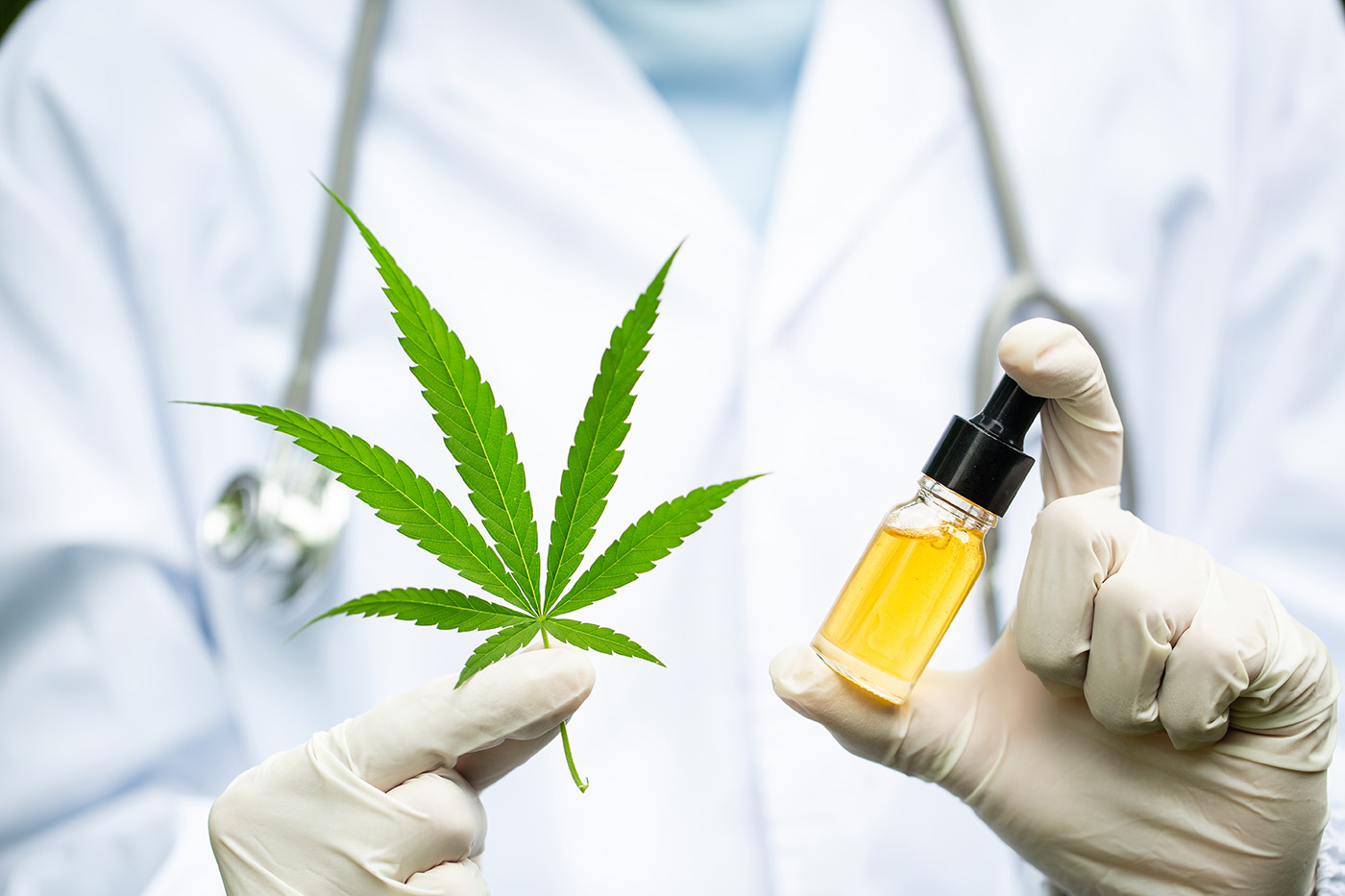Utilizing the Prospective of Medical Cannabis: Recognizing Its Function in Promoting Health and Alleviating Wellness Issues

The Science Behind Clinical Cannabis
The efficacy of medical marijuana in treating different health conditions is rooted in its communication with the endocannabinoid system within the human body. This complex biological system plays an essential duty in regulating various physiological procedures such as cravings, discomfort memory, feeling, and mood. The active substances in clinical marijuana, called cannabinoids, imitate the endocannabinoids generated normally by the body, binding to cannabinoid receptors to modulate these physical functions.
Among the key cannabinoids discovered in medical marijuana is cannabidiol (CBD), which is non-psychoactive and has been studied for its potential healing results. CBD communicates with the endocannabinoid system by inhibiting the failure of endocannabinoids, leading to boosted levels of these compounds in the body. This device is believed to add to the anti-inflammatory, analgesic, and anxiolytic buildings of CBD, making it a promising alternative for conditions such as chronic pain, anxiety conditions, and inflammatory conditions. By understanding the science behind how medical marijuana engages with the endocannabinoid system, researchers can proceed to discover its possibility in promoting wellness and relieving different health and wellness issues.
Therapeutic Qualities of Marijuana
Understanding the detailed communications in between cannabinoids and the endocannabinoid system drops light on the restorative residential properties of marijuana for various health problems. Cannabinoids, such as tetrahydrocannabinol (THC) and cannabidiol (CBD), are the main compounds responsible for the medical advantages of cannabis.
Researches have actually demonstrated the performance of clinical cannabis in alleviating signs and symptoms related to chronic pain, multiple sclerosis, and chemotherapy-induced nausea or vomiting and throwing up - Medical Cannabis Card. Furthermore, marijuana has shown promise in dealing with mental health and wellness conditions like anxiousness, depression, and trauma (PTSD)
Furthermore, the anti-inflammatory properties of cannabinoids make cannabis a possible treatment alternative for inflammatory conditions such as arthritis and inflammatory bowel illness. The therapeutic capacity of marijuana continues to be checked out via research, using brand-new insights into its role in promoting health and dealing with a wide variety of health and wellness concerns.
Medical Marijuana for Chronic Pain
Discovering the efficacy of medical cannabis in taking care of chronic pain exposes its possible as a viable treatment choice for people looking for alternative pain relief approaches. Chronic discomfort influences millions worldwide, frequently causing a reduced top quality of life and reliance on traditional pain medications that may include unwanted negative effects or dangers of dependency. Clinical marijuana, with its energetic substances like THC and CBD, has actually shown pledge in relieving persistent discomfort by connecting with the body's endocannabinoid system to manage discomfort perception.
Studies have indicated that medical marijuana can effectively reduce neuropathic discomfort, arthritis-related pain, and pain connected with conditions like numerous sclerosis. Its anti-inflammatory residential properties can likewise contribute to pain alleviation in problems such as fibromyalgia. Additionally, medical cannabis offers an extra natural method to pain monitoring, possibly minimizing the requirement for opioids and other drugs with harsher side results.
As study into the advantages of clinical marijuana for chronic pain proceeds to broaden, its function in providing all natural pain alleviation options becomes increasingly substantial for clients and medical care companies alike.

Marijuana for Stress And Anxiety and Tension
Study demonstrates the possibility of marijuana in mitigating symptoms of anxiousness and tension, offering an encouraging opportunity for those seeking choice restorative options. Stress and anxiety and tension are widespread mental wellness worries that can significantly influence an individual's health and daily performance. Conventional therapies such as therapy and medicine might not always be reliable for everyone, leading to an expanding passion in alternative treatments like clinical cannabis.
Cannabis has compounds recognized as cannabinoids, such as cannabidiol (CBD) and tetrahydrocannabinol (THC), which interact with the body's endocannabinoid system to control numerous functions, including state of mind and anxiety feedbacks. Research studies have actually shown that CBD, specifically, has anxiolytic residential properties, implying it can assist lower anxiety levels. THC, on the other hand, might give relaxation and mood-lifting effects that can be valuable for managing tension.
Private feedbacks to marijuana can differ, so it is necessary for people taking into consideration marijuana as a treatment option for stress and anxiety and anxiety to seek advice from medical care specialists knowledgeable about medical cannabis to identify the most suitable products and does for their demands.
Marijuana in Epilepsy Therapy
With the tried and tested effectiveness of marijuana in attending to stress and anxiety and anxiety, interest has turned in the direction of its possible function in the treatment of epilepsy. Epilepsy is company website a neurological disorder characterized by reoccurring seizures, which can considerably affect a person's lifestyle. For people whose seizures are not adequately regulated with standard treatments, exploring check that alternative healing alternatives such as medical cannabis has actually ended up being progressively relevant.
Study on the use of cannabis for epilepsy is still advancing, however there is growing evidence to recommend that specific compounds in marijuana, such as cannabidiol (CBD), may provide anticonvulsant effects. CBD, particularly, has actually shown assurance in decreasing the frequency and extent of seizures in some individuals with epilepsy, resulting in the approval of Epidiolex, a CBD-based medicine, for the treatment of particular kinds of seizures.
While even more studies are required to fully recognize the systems behind marijuana' prospective advantages for epilepsy and to identify one of the most efficient formulations and dosages, the existing findings suggest a promising future for integrating medical cannabis right into epilepsy therapy strategies.
Final Thought
In conclusion, medical marijuana has actually revealed encouraging healing properties in treating various health issues such as chronic pain, stress and anxiety, anxiousness, and epilepsy. Recognizing the duty of clinical cannabis in healthcare can lead to better therapy options for patients looking for option treatments.
From chronic discomfort monitoring to stress and anxiety relief and even in the therapy of epilepsy, the function of medical marijuana is complex and appealing. Medical Marijuana near me.Discovering the efficacy of clinical cannabis in taking care of chronic discomfort reveals its possible as a practical therapy option for people looking for option discomfort relief techniques. Clinical cannabis, with its energetic substances like THC and CBD, has revealed promise in relieving chronic discomfort by link interacting with the body's endocannabinoid system to control discomfort perception
Studies have shown that clinical marijuana can efficiently reduce neuropathic discomfort, arthritis-related pain, and pain associated with problems like multiple sclerosis.In final thought, clinical cannabis has revealed appealing healing properties in treating various health and wellness concerns such as chronic pain, anxiety, epilepsy, and anxiousness.